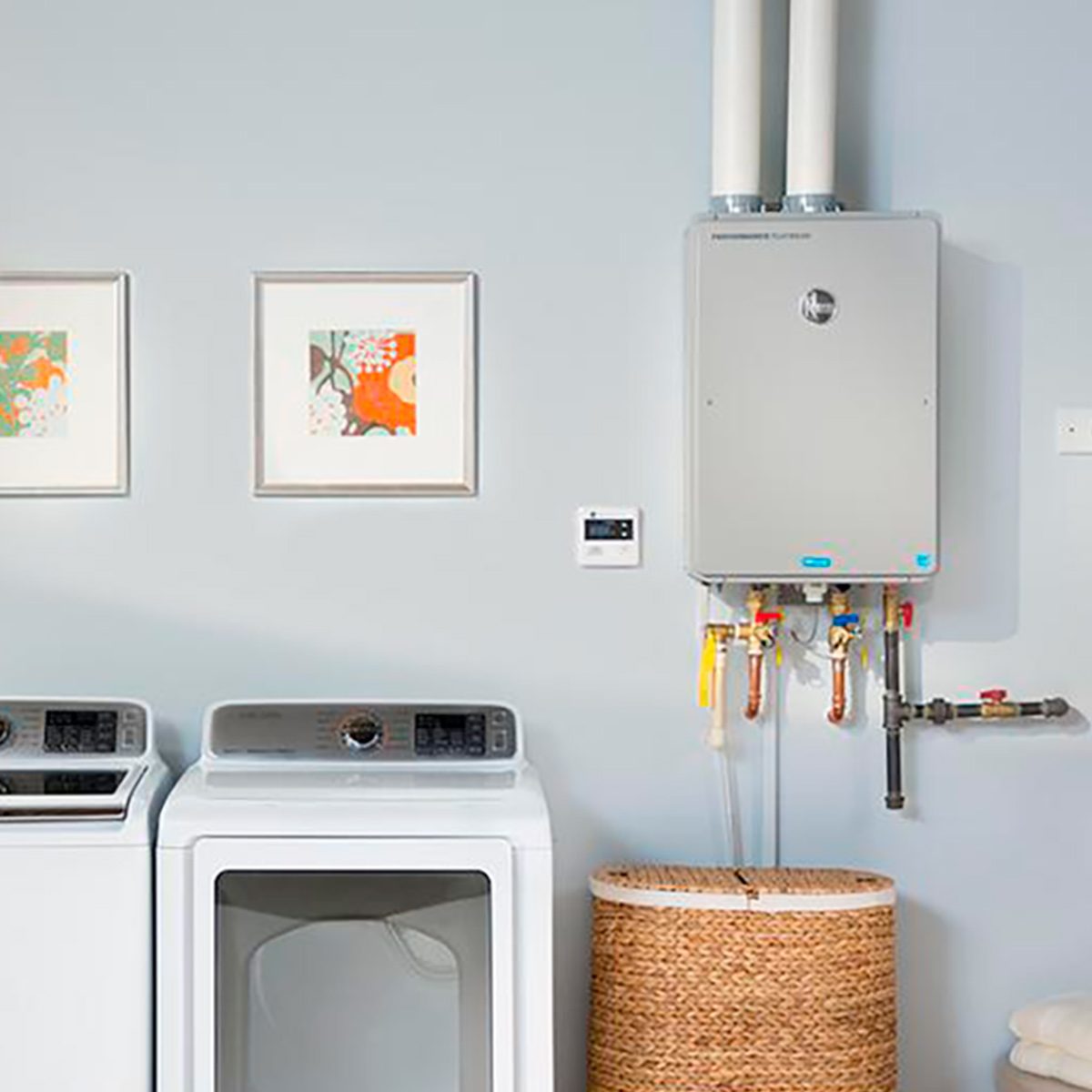Tucked away in a utility room or the basement, water heaters are the workhorses of the home, essential to doing dishes, washing clothes, and bathing. It’s no wonder, then, that water heaters are among the top three energy consumers in a home, accounting for 18% of the average home’s energy usage.
Hot water is indispensable to our daily lives. The average American home uses 80-120 gallons of hot water a day, costing $267 annually on average. Hot water kills off germs and bacteria on dishes, laundry and surfaces. Many homes are heated by hot water or steam heat. And imagine never having a hot shower again!
While we take hot water for granted today, it was a luxury throughout most of human history. The ancient Romans were hot water “pioneers” who built large, public baths that tapped into natural hot springs. But in other times and places, people boiled a pot of water over a fire or on a stove to take their baths and wash their laundry.
Things began to change in 1868 when Benjamin Waddy Maughan, an English painter, invented a way to heat the cool water in pipes with Bunsen burners. His goal was laudable, but it was a dangerous way to get hot water from the tap!
The inventor of the modern day water heater was Edwin Ruud, a Norwegian mechanical engineer working in Philadelphia. In 1889, he designed “the first automatic, storage-tank type gas water heater.” Ruud founded a company with several other engineers and patented the invention in 1897. The Ruud Automatic Gas Water-Heater promised instant hot water coming out of the faucet more safely than ever before. His invention was timely—it took advantage of the advent of gas utility services in large cities in the 1890s and 1900s.
Ruud improved on the original design and added safety features, ultimately gaining 13 patents for his life-changing invention. In spite of those changes, by 1920, only 1% of U.S. homes had electricity and indoor plumbing. The establishment of standardized plumbing codes in the 1940s finally paved the way for widely available, safe indoor plumbing that relied on the storage tank water heater.
Many homes still rely on water heater technology that is only a generation away from Edwin Ruud’s invention, but in the 1970s, the tankless hot water heater was introduced. Instead of storing hot water, tankless models take advantage of the home’s standard heating system to heat water with coils as it is needed. A variation of the same approach, the indirect water heater, stores energy that allows the home’s furnace to turn on and off less frequently. In recent years, hybrid or heat pump hot water heaters have also become popular. Just like a heat pump used as part of an HVAC system, hybrid hot water heaters make use of a heat pump to heat water via the surrounding ambient air.
Hot water based on clean energy has become more economically feasible, too. As more solar homes are built, solar water heaters have grown in popularity and they are more efficient in many scenarios. (For a detailed analysis of solar and other water heater technologies, see this report from NREL, a division of the Department of Energy.)

Source: https://sense.com/wp-content/uploads/2024/05/rheem-tankless-water-heater.jpg
So how will Americans get into hot water in the future? Geothermal heating is among the most efficient sources of hot water since it taps the naturally occurring heat in the earth. Volcanic Iceland relies almost entirely on geothermal energy but 71 additional countries use geothermal heat, including China, Japan, France, Italy, New Zealand, and America. The Department of Energy recently funded a $140 million project in Utah to extract geothermal energy with techniques similar to the hydraulic fracking used by the oil and gas industry. The goal is to create geothermal wells that could become a major source of America’s energy in the future.
In our next blog post, we’ll explore how you can take advantage of new water heating technology and optimize your water heater’s energy usage.
This blog post was researched and written by Dani Kra, a Sense summer intern and a student at The University of Maine. Thank you, Dani, for your research into the fascinating history and intriguing future of water heaters!
